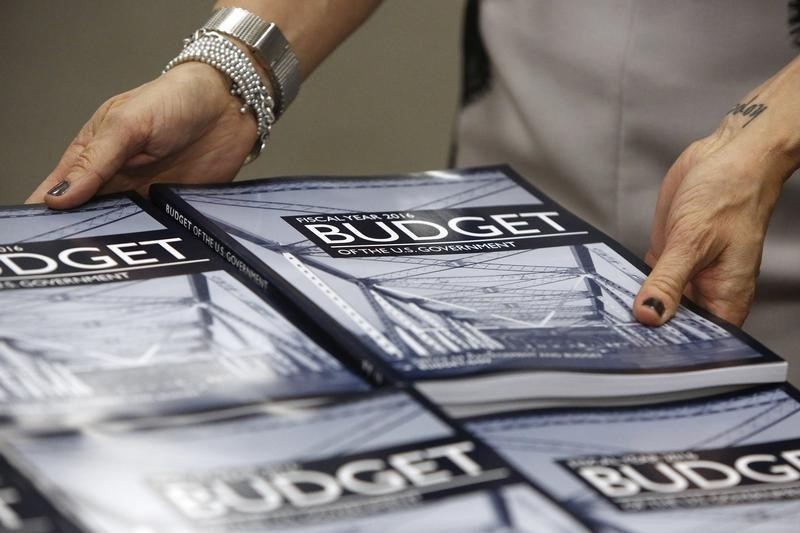Investing.com’s stocks of the week
By David Lawder
WASHINGTON (Reuters) - President Barack Obama's fiscal 2016 budget proposal would shrink U.S. deficits by $1.232 trillion over 10 years compared to those expected under current tax and spending laws, the Congressional Budget Office said on Thursday.
The deficit reduction, although smaller than that claimed by the White House, is largely due to Obama's proposals for higher taxes on the wealthy, his plans for lower spending on military operations in Afghanistan and net savings from proposed immigration reforms, the CBO said.
For fiscal 2016, the first full year under Obama's fiscal blueprint if Congress were to adopt it, the deficit would fall to $380 billion from $455 billion, the CBO's latest forecast under current laws.
But Congress routinely casts aside the president's budget request and passes its own budget and spending bills. Next week, Republican-controlled budget committees in the House and Senate intend to unveil their own proposals for budgets that eliminate deficits within 10 years, with deep spending cuts expected for some federal benefits programs.
Under the analysis from the non-partisan CBO, near term deficits under Obama's proposal would be smaller than those forecast by the White House Office of Management and Budget, while deficits in later years are larger.
The CBO's fiscal 2016 deficit estimate is $94 billion less than the White House $474 billion estimate, a trend that continues through about 2019, when they grow larger in CBO analysis.
The CBO's estimate for a cumulative deficit of $5.977 trillion from 2016 through 2025 is $303 billion higher than the White House's forecast.
The CBO said its estimates for spending on federal benefits and interest costs are lower in the near term than the White House estimates. But the CBO's estimated revenues will grow more slowly later in the decade due to its assumptions for reduced economic growth and lower effective tax rates on corporate profits and other income.
